Mauricio Pochettino would be disappointed looking at Chelsea’s position halfway through the season as they rank 10th in the Premier League. Although he understands that the West London project will take time to bear fruit, as the youthful squad finds its rhythm, a certain standard is expected at a club like Chelsea, which results are not meeting.
There are many areas where Chelsea needs to improve, like efficiency in the offensive third, pressing cohesiveness, and defensive competency, to name a few. However, a glaring stumbling block for the side recently has been their proneness to concede in the second half.
What do the numbers say?
Before addressing the issue at hand, through data, we will first illustrate the depth of the problem that Mauricio Pochettino must fix.
Looking at the ‘goals per time segment’ chart elucidates this detail. As we can see below, Chelsea has, so far, conceded the majority (68%) of their goals in the second half of league games.
Furthermore, Chelsea has conceded a staggering 11 goals (36% of total conceded goals) in the final fifteen minutes of matches. Although the final period lasts more than the allocated fifteen, due to the leniency of injury time in the Premier League this season, it still highlights the Blues’ vulnerability to crumble at the end of matches.
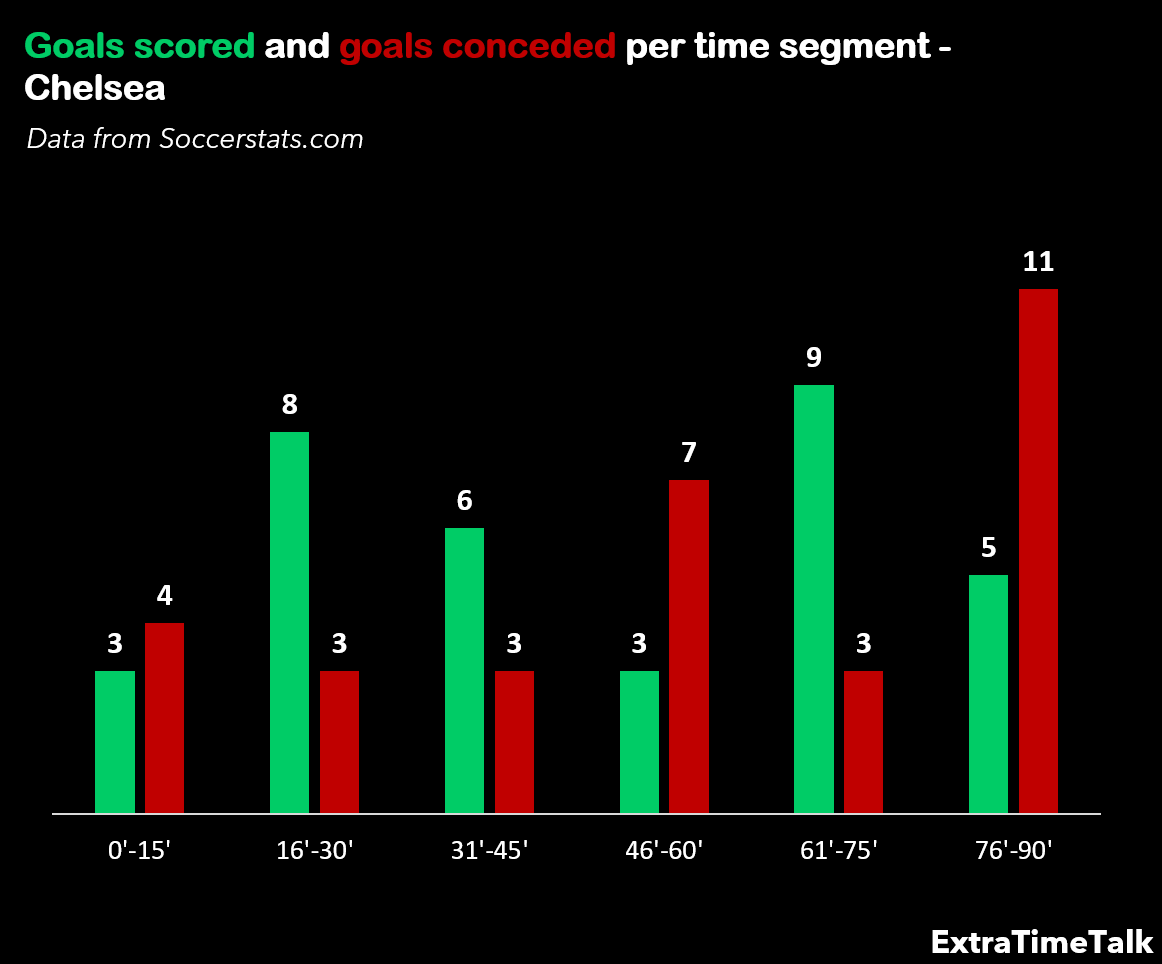
Diving further into these numbers, we see a brief period, during the 61st and 75th-minute mark, where Chelsea concedes few but scores many goals, which could point to the positive effect of the substitutions made by Mauricio Pochettino around the one-hour mark.
However, barring that interval, Chelsea is underwhelming during the first and last fifteen minutes of the second half – showing that they fall apart after the opposition’s half-time tweaks and in the last stretch of the match where they face defensive pressure.
This detail is further corroborated by the expected goals scored and goals against figures, which proves that the conclusions above are not based on a false pretense as 62% of total chances conceded have occurred in the second half – similar to the statistic of 68% of total goals conceded in that period.
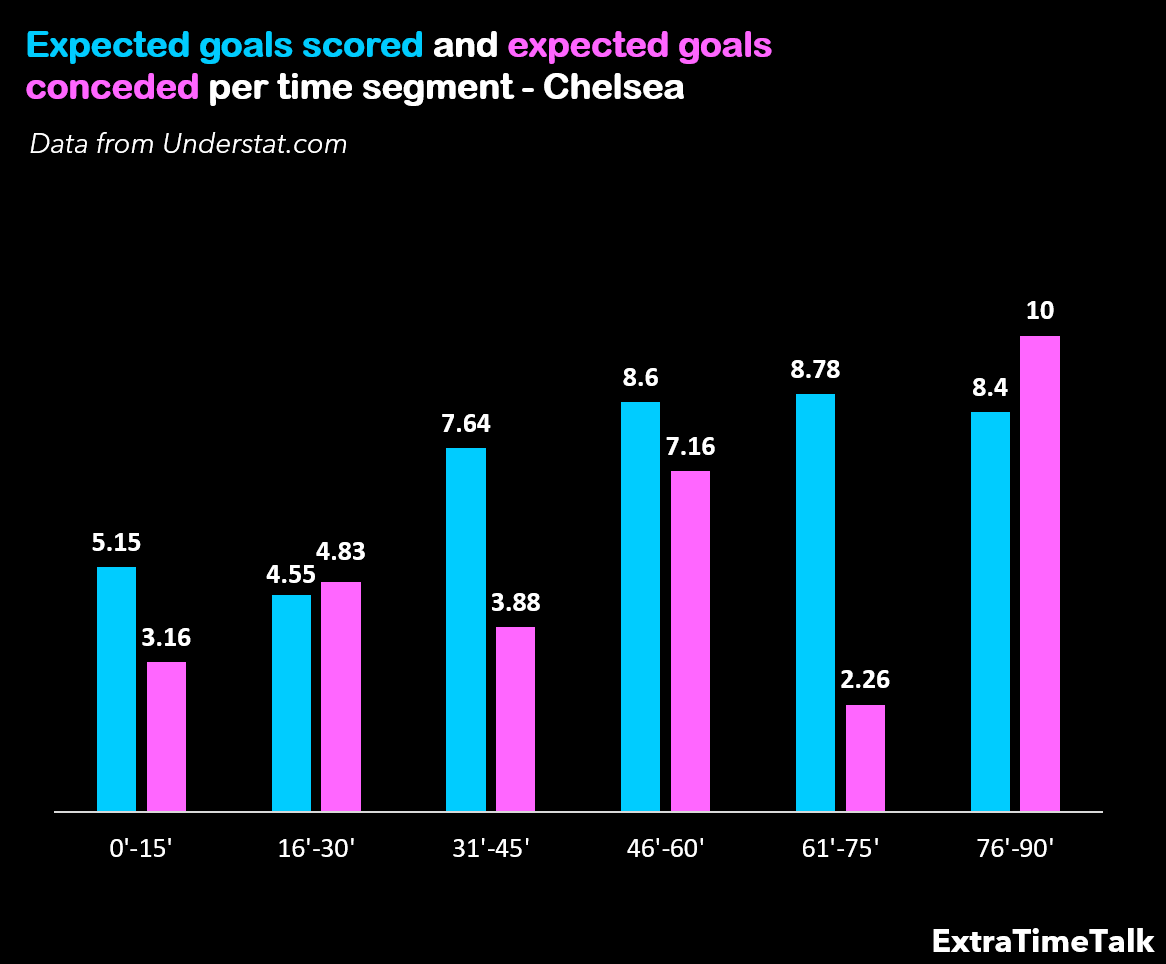
Is Mauricio Pochettino tactically falling short?
The onus to control a match falls on the manager since he has to ensure the opposition is not tactically dominating the game. Some fans have recently questioned the Chelsea head coach for his tactical intelligence and flexibility. Are there genuine reasons behind this argument, or is it based on wrong assumptions?
The observations made earlier from the goals per time segment chart could support the opinion above, where Chelsea suffered in the opening spells of the second half due to tactical adjustments made by the opposition.
Although the 61st to 75th-minute phase indicates that he can cope with those changes, the last fifteen minutes show that, on average, the opposition manager comes out on top – as the opposition is creating more chances than Chelsea.
A suitable case study is the game between Chelsea and Wolverhampton Wanderers in December.
The pressing system deployed by Gary O’Neil at the opening stages of the match seemed ineffective as Chelsea had a man advantage during the first phase of build-up, as shown by the screengrab below.
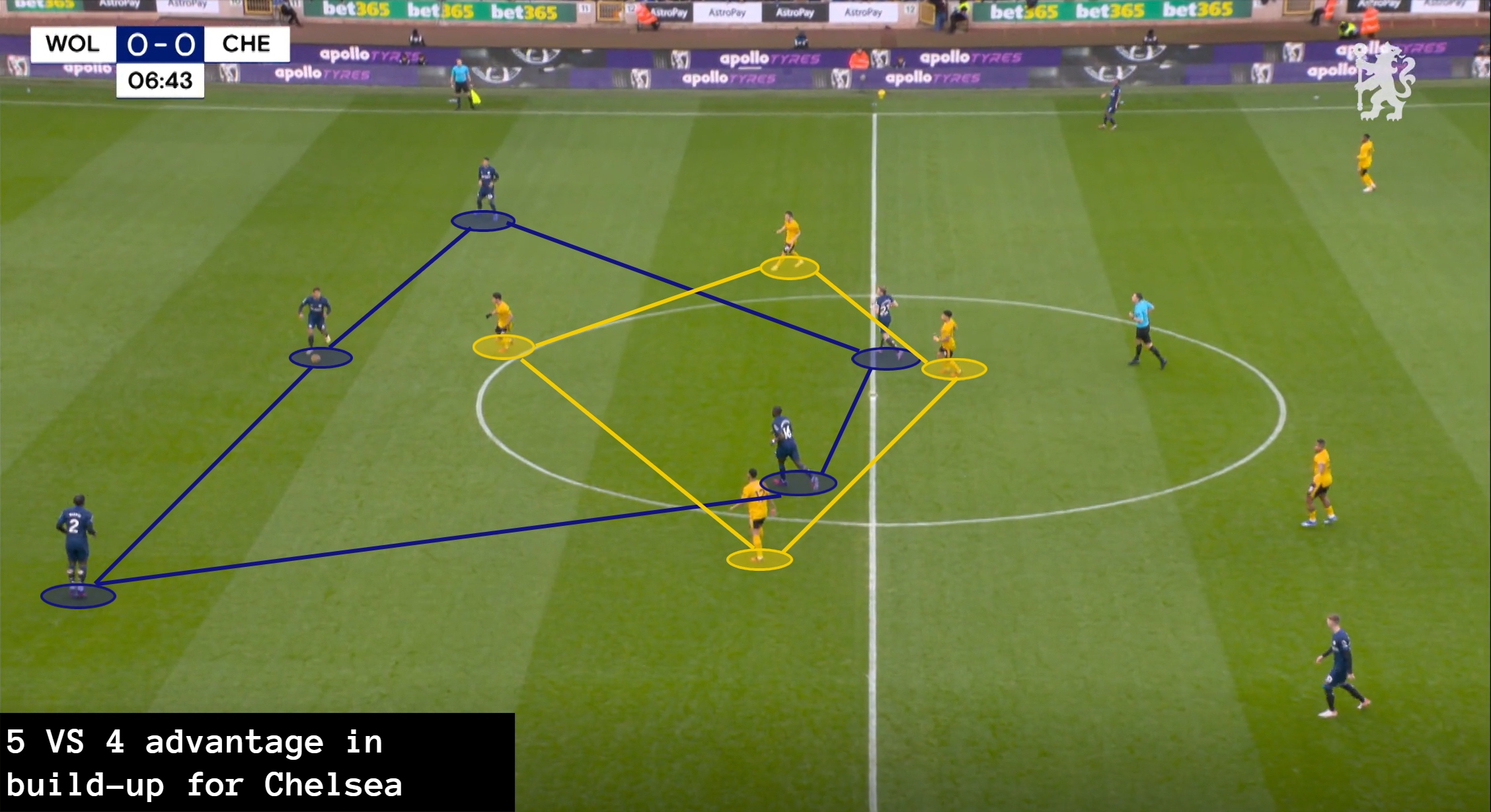
It brought success to Chelsea as they realized it was easy to bypass the first line of pressure and also regularly found Cole Palmer between the lines, who can influence games when given the space.
Gary O’Neil identified this problem quickly and acted hastily by modifying his team’s pressing structure around the half-hour mark. He shifted their passive mid-block structure to an aggressive hybrid pressing system that forced Chelsea players to play quicker and find incisive passes.
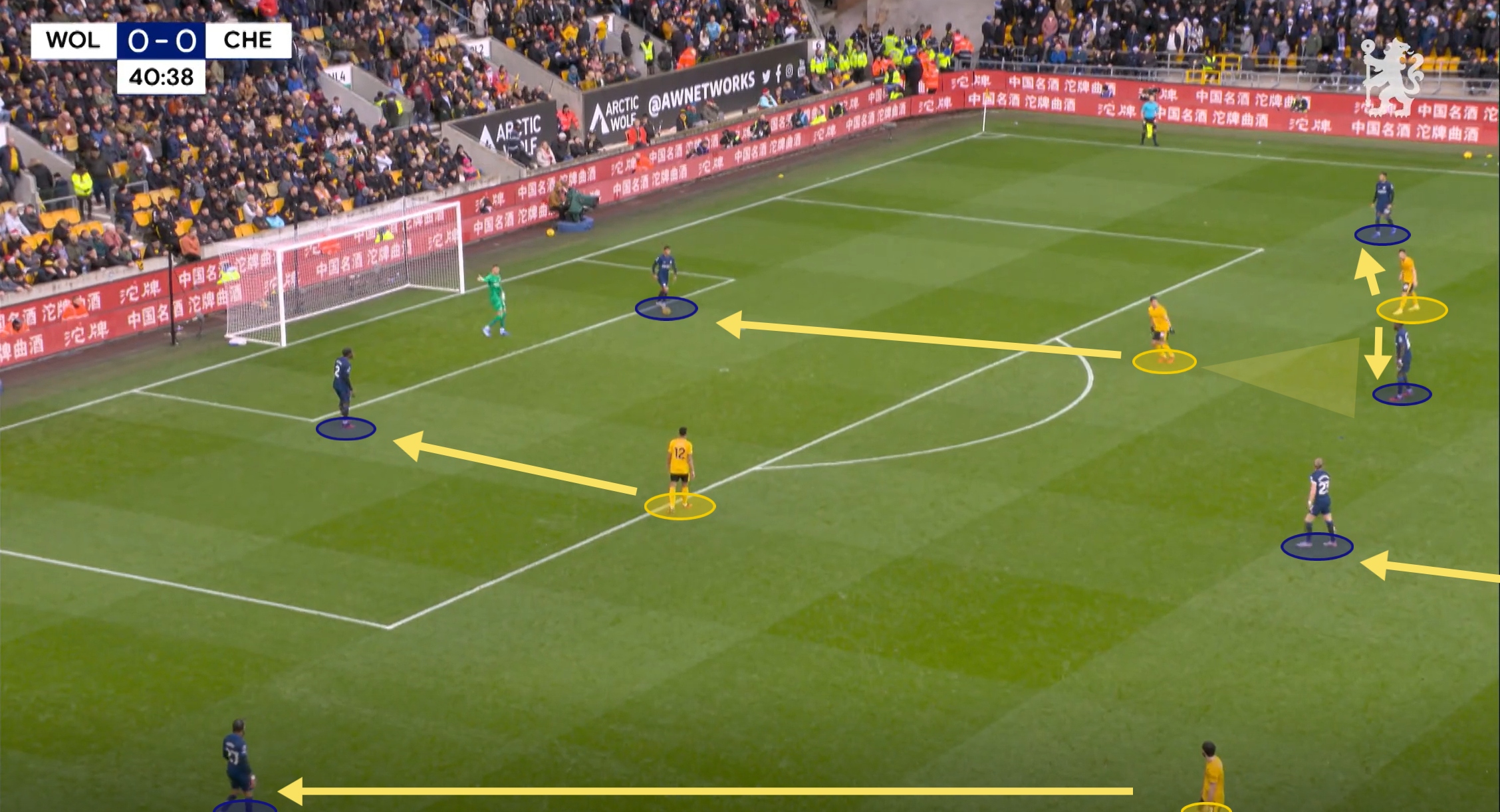
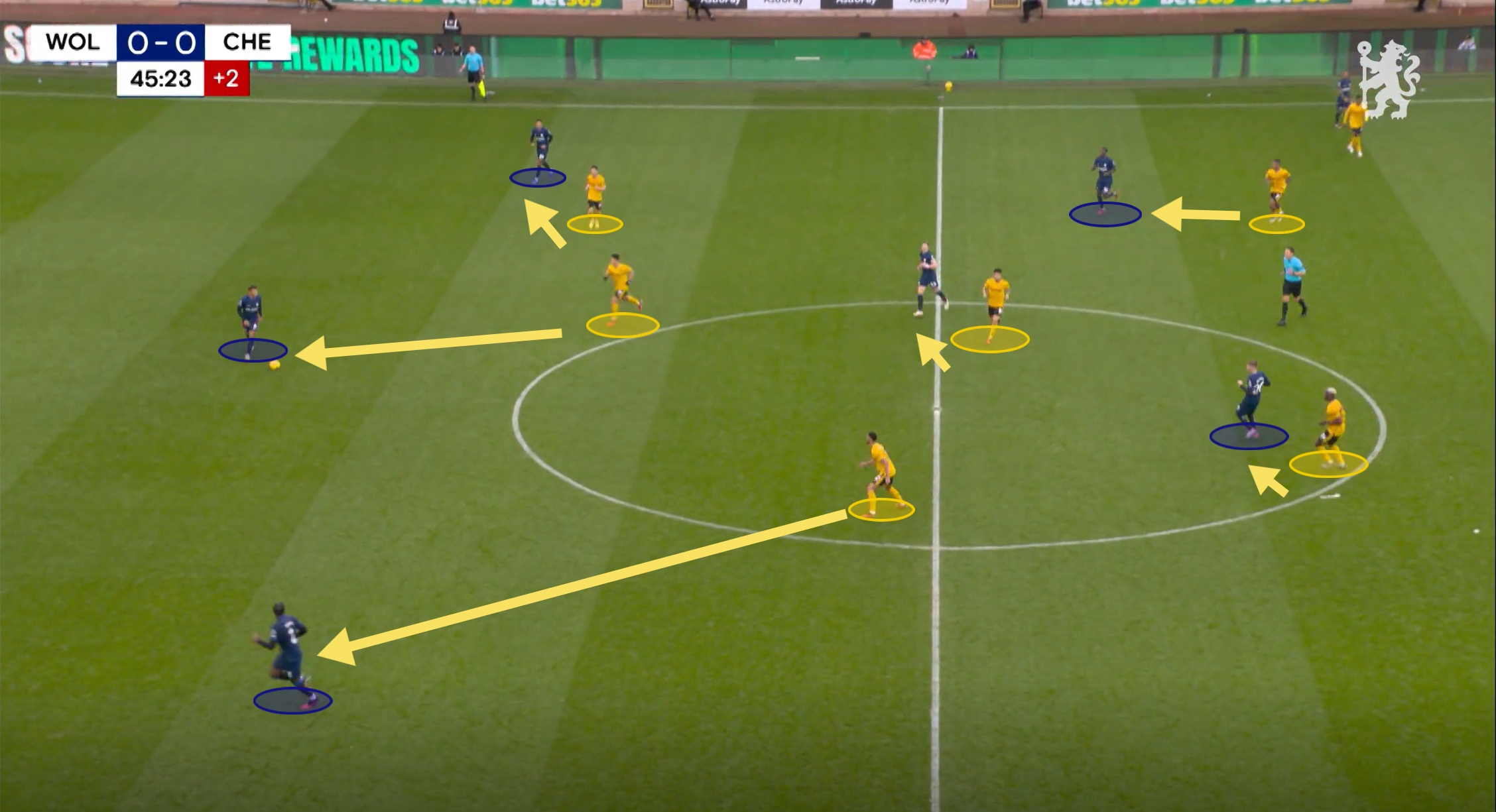
The risk of the tactic is that if Chelsea completes a few accurate passes, it could open the entire Wolves defensive unit. However, the upsides are generous if executed well, as it would result in high turnovers from which they can generate chances.
Since Wolves have proved to be a well-drilled pressing team over the past few months, Gary O’Neil could trust his players to adjust swiftly. Wolves eventually scored from a corner they earned after causing a high turnover, which led to a saved shot.
Mauricio Pochettino reacted by altering his build-up system – dropping Cole Palmer and Christopher Nkunku into the half-space channels beside Conor Gallagher – resulting in a man advantage again for Chelsea during the build-up phase.
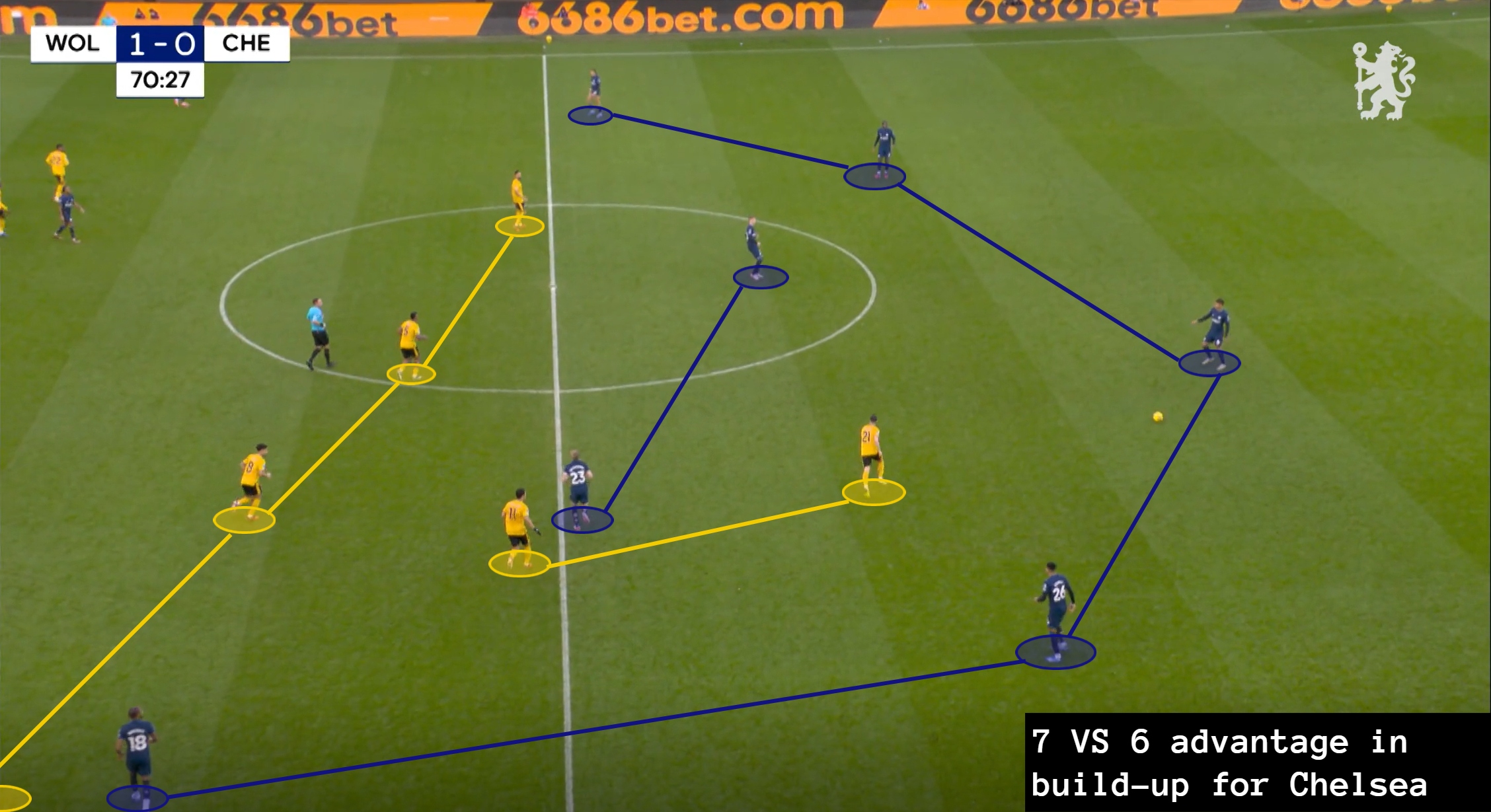
Gary O’Neil recognized the situation quickly and adapted. Instead of committing more players to the high press and vacating space behind the defensive line, he instructed the team to drop off into a low block.
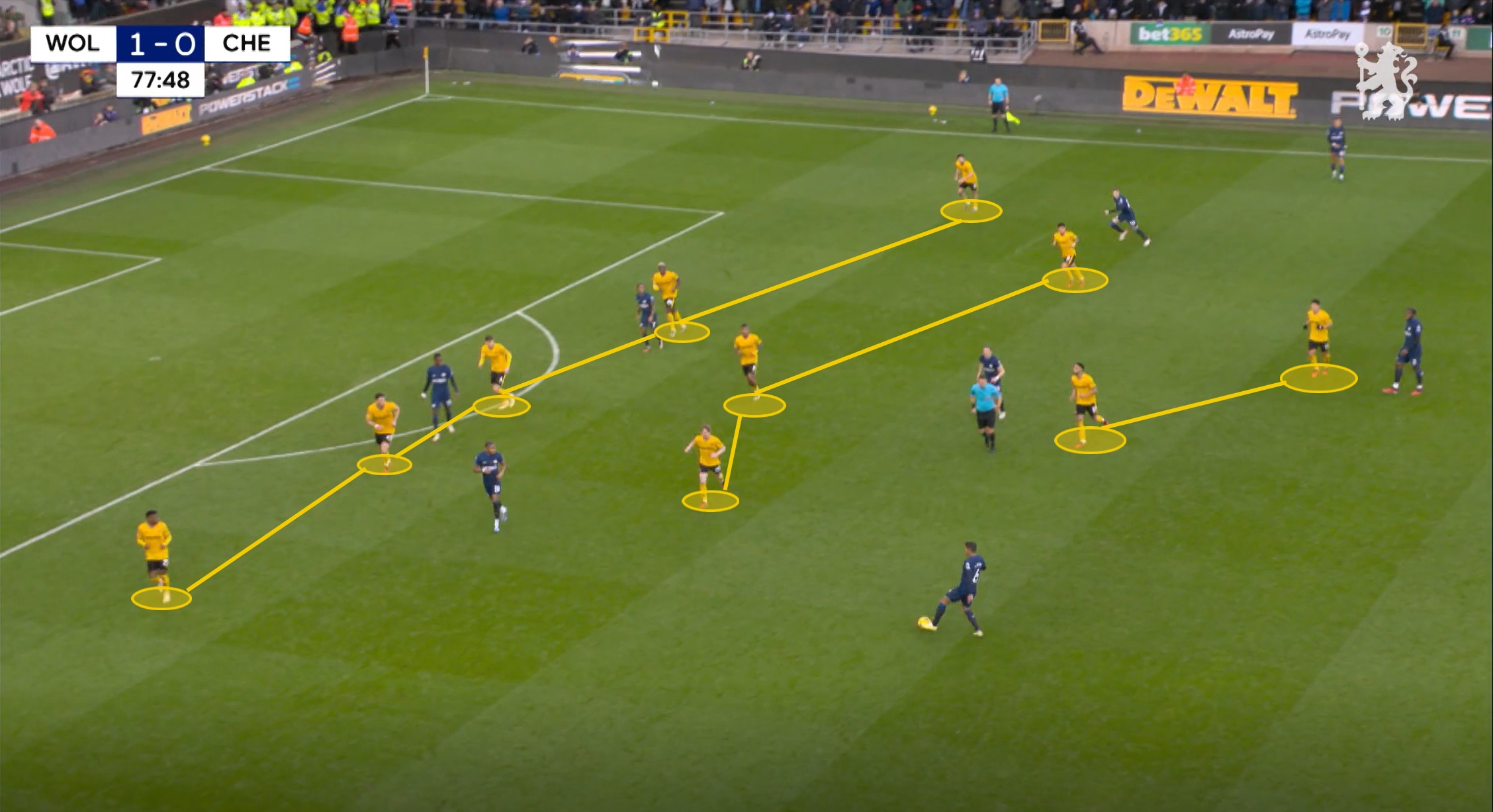
The Chelsea manager chopped and changed again, but his reaction was eventually too late since Wolves comfortably controlled the match without the ball. With a game to chase, Mauricio Pochettino had to devote more players forward, leaving space for Wolves to counter-attack.
Although Benoit Badiashile contributed to the second goal after committing an unfortunate mistake in the penalty box, and Chelsea players’ wastefulness in front of the goal was to blame, Mauricio Pochettino was also to take responsibility.
Out of the two coaches on the sidelines, Gary O’Neil was sharper than the Argentine in identifying problems and rapidly coming up with solutions.
However, Mauricio Pochettino has generally remained tactically at par with most Premier League coaches. One could even argue that it is harsh to blame the coach for results like the one at Molineux, as there is only so much he can do when his team is missing sitters.
Moreover, other factors are also contributing to Chelsea’s capitulation in the second half.
The drawbacks of a young squad
Managers can improve the ability of their team to control matches and perform consistently for ninety minutes over time. But the experience of players can be more influential. Since Chelsea has assembled the youngest squad in the Premier League, and only recently so, they were bound to face difficulties in both aspects at this stage.
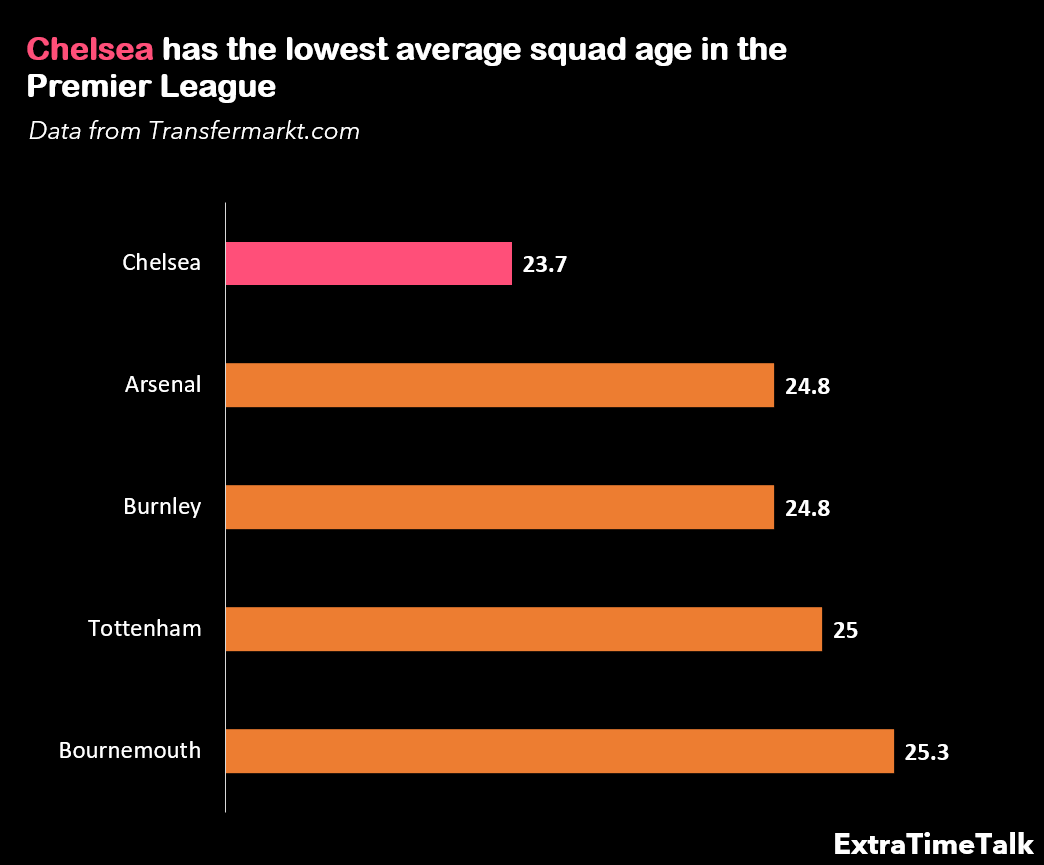
This squad is also one of the youngest Chelsea squads – surprisingly younger than the 2019-20 team, which famously integrated many Cobham graduates like Mason Mount, Tammy Abraham, and Fikayo Tomori after a summer transfer ban.
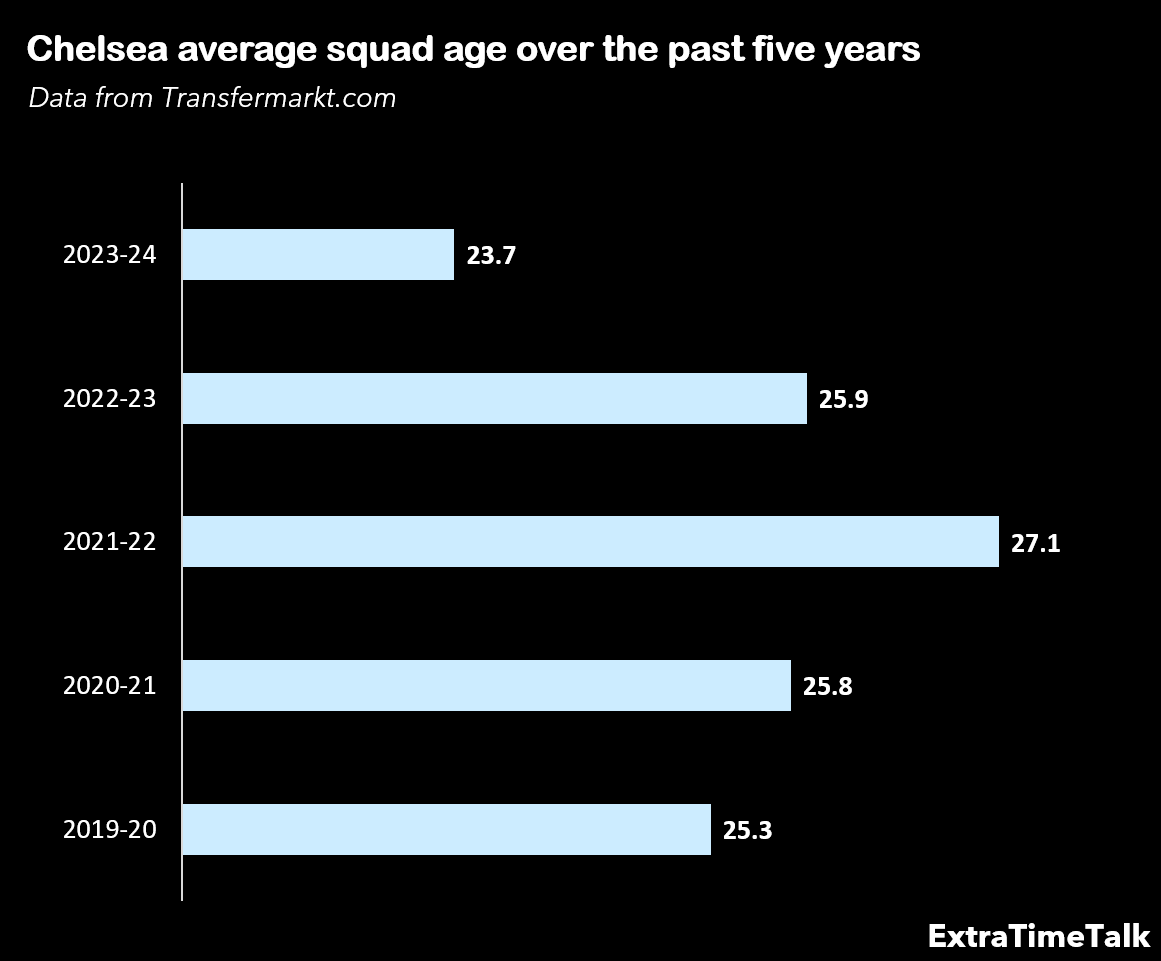
Moreover, young players are more exposed to committing mistakes, unlike seasoned veterans, who have insight from experience.
Take Chelsea’s match against Crystal Palace, when they conceded a goal after Moises Caicedo failed to track the run by Michael Olise towards the back post. This goal halted Chelsea’s momentum in that match and turned the tide in the visitor’s favor for the next half-hour.
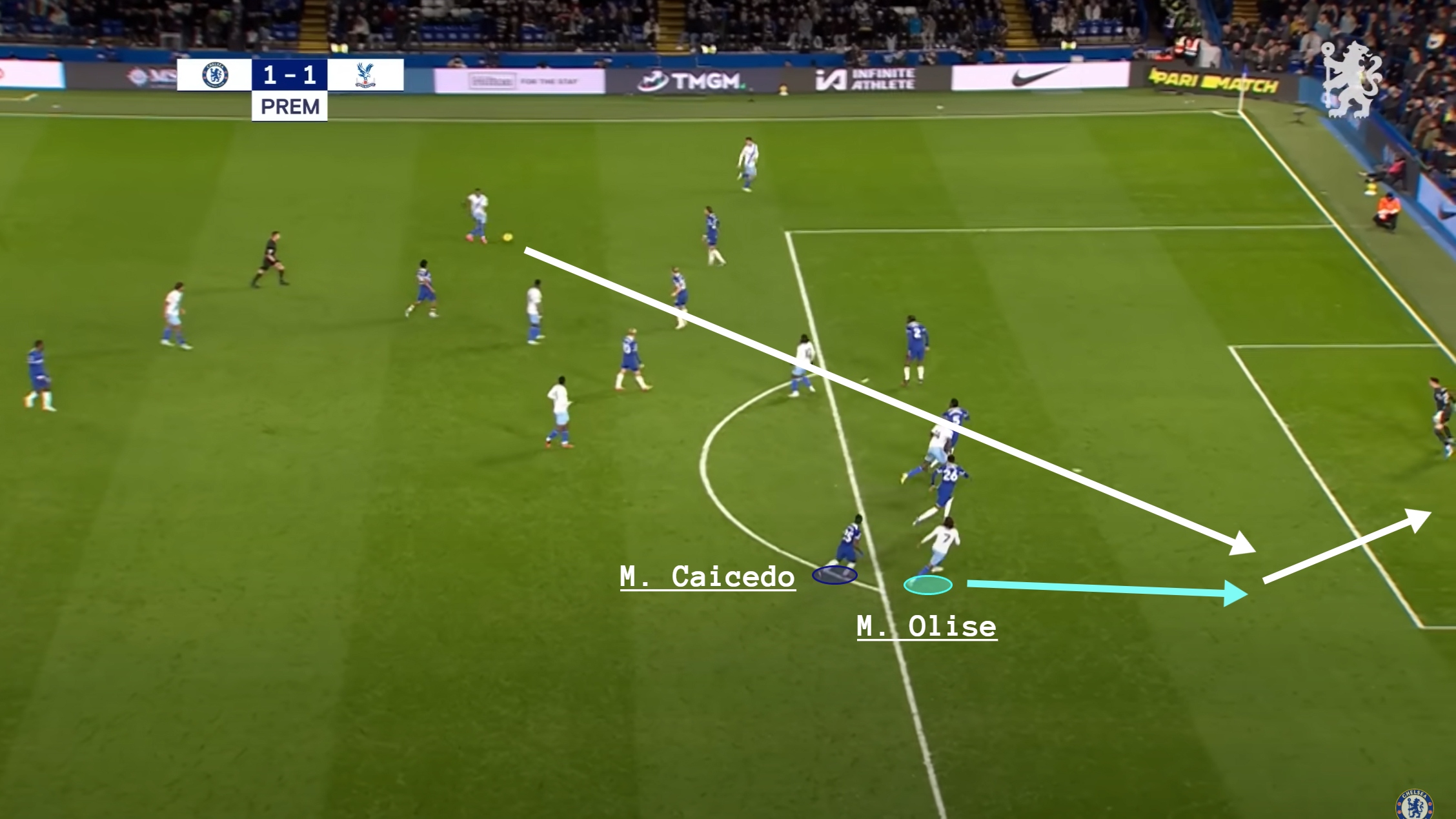
Or when Cole Palmer failed to keep tabs on Alfie Doughty, who assists the second goal for Luton Town, which also put unnecessary pressure on a match that Chelsea should have comfortably seen through.
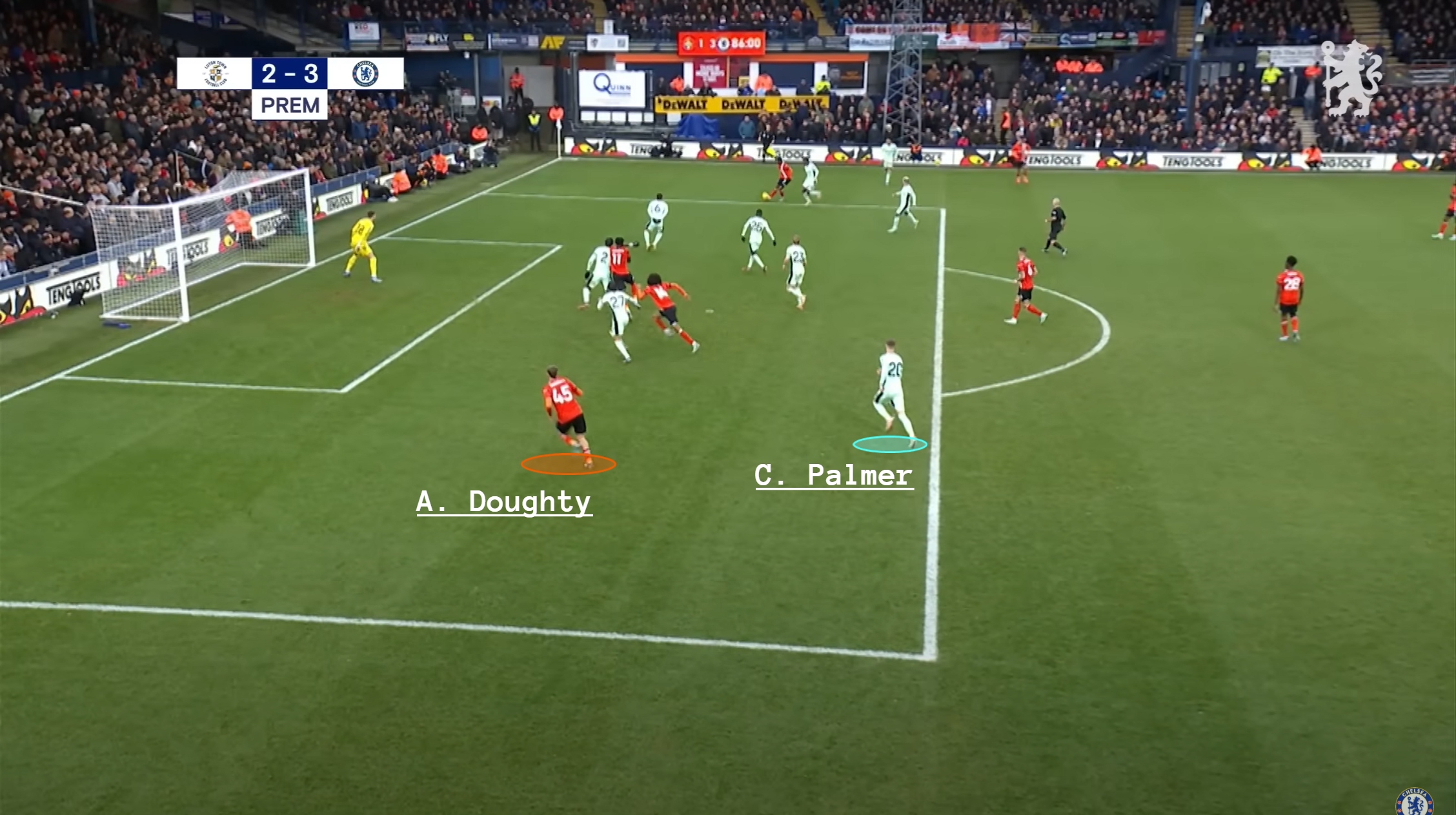
Furthermore, Chelsea has been plagued with injuries again this season. As Mauricio Pochettino has had a large portion of his squad injured for the past four months, with many still on the sidelines, it is difficult for a coach to integrate his principles effectively.
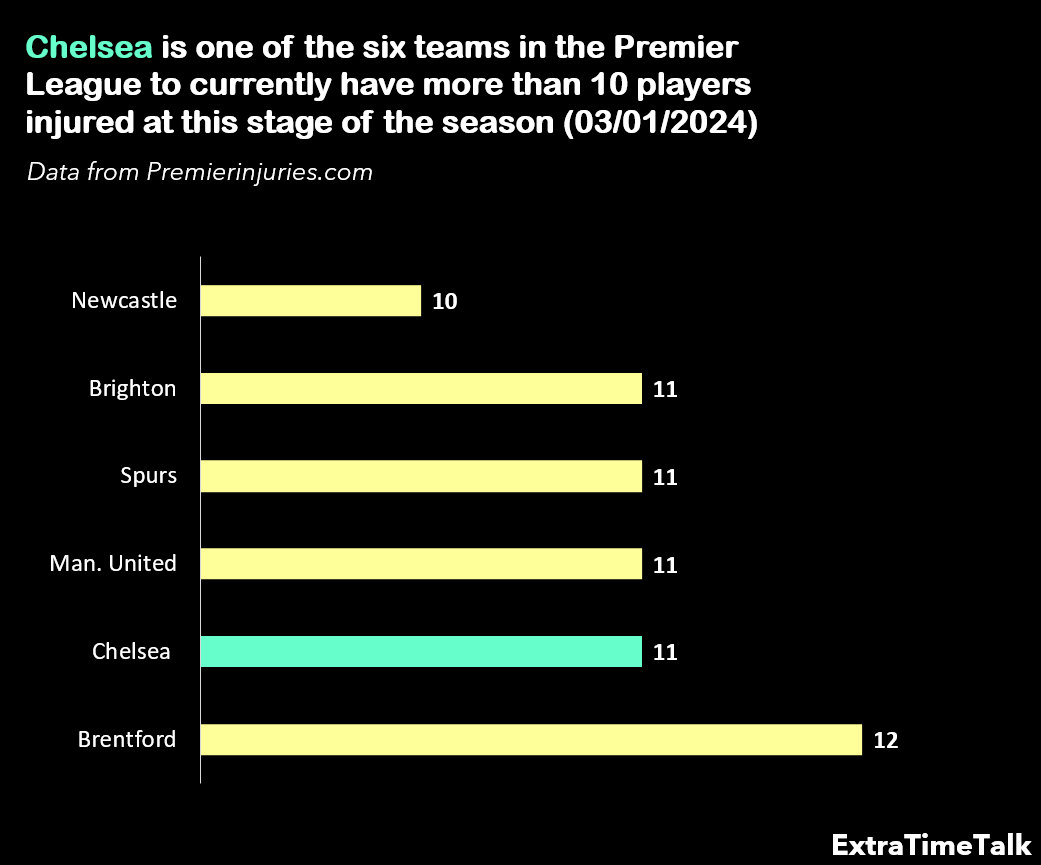
Performances should start translating into results
Generally, Chelsea seems to have conceded chances and goals due to inexperience and errors that Mauricio Pochettino cannot foresee. Therefore, improvements in their second-half displays can only develop over time as the squad gels and improves their in-game intelligence and management.
Mauricio Pochettino will need time to iron out the team’s inconsistencies during a match. However, he does not have the liberty to take forever, as results must improve in the second half of the season to have a chance of qualifying for Europe.
With the dawn of a new calendar year, the club will hope to turn a new page. But for that to materialize, Chelsea will have to hit the ground running imminently.

